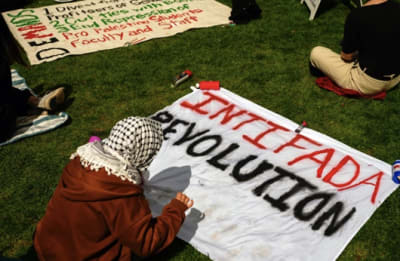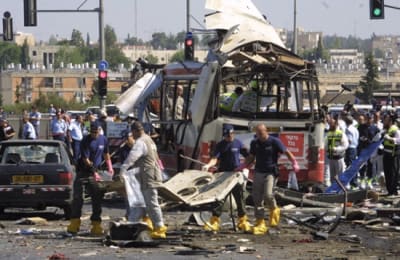
Photo of bus explosions from the second Intifada

Pro-Hamas protestors holding a banner that reads 'Globalise the Intifada'

A Pro-Hamas protestors writing 'Intifada Revolution' on a cloth

Photo of another bus explosions from the second Intifada
Conclusions
The concept of Jihad, which originally had various spiritual and practical meanings, has evolved over time into Jihadism, now understood as an eternal, unconditional war against the enemies of Islam. Anyone using the term Jihad to mean something else is either severely misguided and misinformed, or is deliberately using it for harmful and violent purposes.



